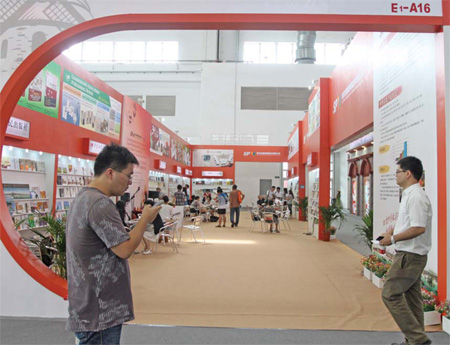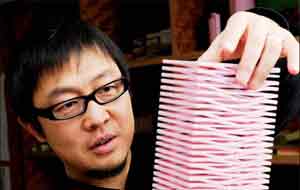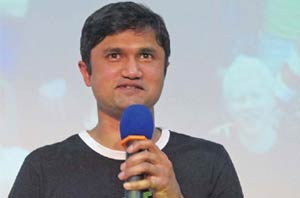Random access
Updated: 2011-09-16 08:40
By Andrew Moody (China Daily)
|
|||||||||
|
|
One who thinks traditional publishing is on the way out is Robert Fletcher, president of Houston, Texas-based Publish on Demand Global.
"In the United States we think the traditional publishers are what we call 'dead men walking' and their business model has been dying over the past three to five years," he says.
Fletcher is currently in the process of signing deals with Chinese publishers who want to target the 50 million Chinese who live abroad.
"Many Chinese publishers are coming to us because they want to put their entire catalogue in the Chinese language into these global distribution channels," he says.
He believes digital publishing in China will take off dramatically once the government puts in place effective copyright laws and digital rights management.
"We believe that once the final decisions are made, China will eclipse the United States as the biggest digital publishing market in the world in one to three years," he says.
Daniel Watts, regional director for Asia, Pan Macmillan, another leading international publisher, says digital publishing is more established already in China than in other Asian markets such as India, where he is based in Delhi.
"In India the e-books market is a lot less evolved than what we are seeing in China. There are lots of e-reading devices on the market and publishers are distributing e-books here," he says.
"In India this sort of thing is only really starting. There just hasn't been the take up of e-reading devices. The iPad is available but you just don't see everyone walking around with one, like you do on the Chinese mainland and certainly in Hong Kong."
The key problem in China is not the lack of digital readers but the establishment of a workable business model for publishers so they can drive revenues from their content.
"The only way I can see it working is that if they can offer people devices either free or at a small price and then people pay for a subscription," says Zhong at China Telecom.
"People might be more attracted if they could also offer additional services like meet-the-author events or something like that."
Wischenbart says one of the barriers to the market developing in China and in the rest of the world is the basic nature of the current e-reading devices on the market.
"What we have is very first generation. Remember the first very big and bulky cell phones and the Sony Walkman, which used to chew up all your favorite tapes. That is a little bit like the status of e-readers now," he says.
"My guess is that the breakthrough will come when you have a merger of the current black and white text devices with the iPad, which is still heavy and has a short battery life. You need something that is $50, weighs 150 g and has a battery that lasts a week."
Zhong at China Telecom says it is not just about gadgets but that the current counterfeit problem that just makes the market too difficult for traditional publishers.
"Once they put the whole content of a book on the Internet, the sales of the paper version will start to decline at 20 percent a day. It is that bad," he says.
He still believes the traditional book still has a shelf life in China.
"What happened to CCTV (China Central Television) when the Internet came along and you now have all those social media? It is not dying. Traditional books, which you read on a train and a bus, still have a certain feel and touch about them and they will remain, I am sure," he says.
He at Founder Apabi Technology, despite providing the technology for the digital industry to prosper, agrees the book still has a future, even if it is a niche one.
"I don't think books are dead yet. It is going to be some time before traditional publishing ends - 10, 20 or even 50 years. People still like reading print," he says.










